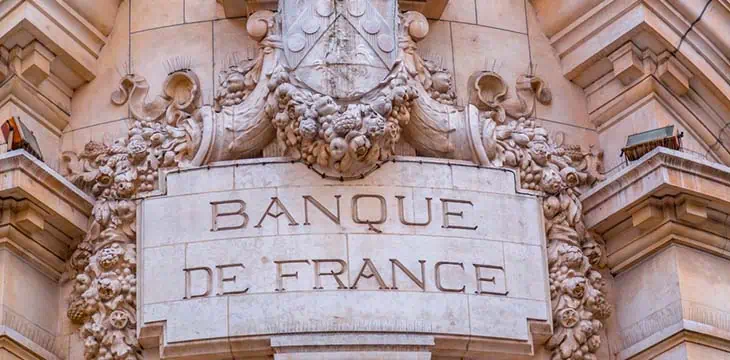|
Getting your Trinity Audio player ready...
|
Central bank digital currencies (CBDCs) must be developed with asset tokenization in mind, or users will turn to stablecoins, says the Banque de France.
While tokenized assets constitute only a small percentage of the total financial assets, the French central bank believes this will change soon, stated Deputy Governor Denis Beau in his speech at a conference organized by the bank.
“If we do not adapt central bank money to this evolving landscape, meaning if central bank money cannot be used to settle tokenised transactions, industry participants may turn to alternative settlement assets, such as stablecoins,” he noted.
Beau touted tokenization as the future of finance. Banque de France believes tokenizing assets through distributed ledger technology has great potential in optimizing and tracking transactions, especially post-trade activities. However, it can only materialize if it is “supported, anticipated, and secured” by central banks and policymakers.
Asset tokenization is taking center stage globally. In a working paper published in September, the U.S. Federal Reserve noted that tokenizing real-world assets could unlock $1.5 trillion by 2030. Tokenization on the blockchain digitizes assets and makes their trading easy, fast and seamless and lays out new opportunities like fractional asset ownership.
For tokenization to be successful, however, regulators must pave the way with enabling regulations, says the French central bank deputy governor.
“We can also encourage the emergence of innovative projects by creating a framework of trust. This framework can only be built if regulation is proactive rather than reactive in response to crises,” Beau told the attendees, who included representatives of the Singaporean and Swiss central banks, SWIFT, and Bank for International Settlements.
Reactive regulations have been a key criticism for authorities in Europe and beyond. In the U.S., the Securities and Exchange Commission (SEC) and Commodity Futures Trading Commission ((CFTC) have been called out for their “regulation by enforcement” approach. Recently, in Hong Kong, the securities watchdog was accused of its reactive response to the city’s largest-ever financial scam in JPEX.
In addition to sparking tokenization, Beau pointed out that CBDCs could unlock cross-border payments. He urged other central banks to prioritize cross-border transfers from the outset “and not as an afterthought.”
To learn more about central bank digital currencies and some of the design decisions that need to be considered when creating and launching it, read nChain’s CBDC playbook.
Watch: Blockchain provides perfect foundation for CBDC

 09-05-2025
09-05-2025 





